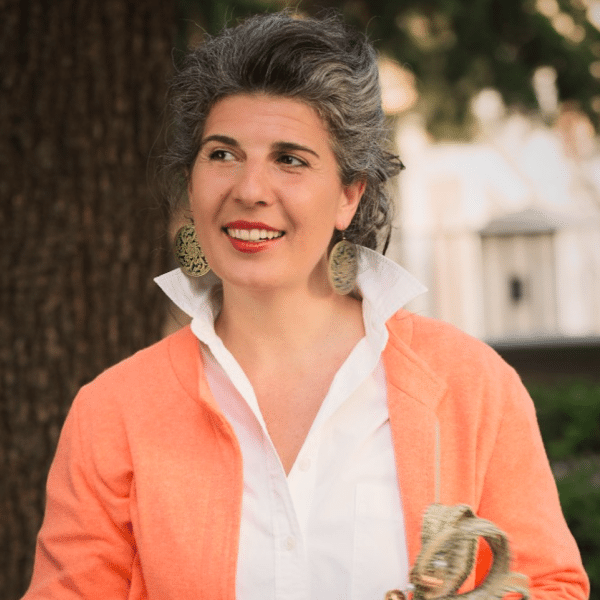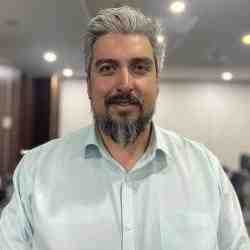Wprowadzenie
Pax is reducing bullying and violence in schools and beyond the education system, establishing the roots of positive coexistence and peace building by making emotional literacy, active empathy and compassion a keystone within the wider educational community.
Nowy pomysł
Today, we live in a complex world where societal polarization, lack of interpersonal communication and family support, coupled with technology overuse, have resulted in an increasingly anxious, unhappy and lonely world. It’s apparent that anger and violence are increasing and our ability to empathize weakening, becoming more and more difficult to perceive and understand our own and others emotional state. For instance, a visible consequence in Spain in the educational arena, is that seven out of ten children suffer at some point from bullying at school.
In the last decade, many programs to reduce bullying in schools have been implemented. However, bullying programs are usually centered on the “aggressor”, with an element of punitive measures against him/her, increasing the negative coexistence in the school. Pax’s model “Theatre of Awareness” and her program “In Their Shoes: A Space of Active Empathy” changes the focus of the problem creating a mindset shift in educators, parents and students away from punishment, towards an active empathy and compassionate model, recognizing and dealing positively with conflicts and creating restorative practices through emotional education and self-knowledge. This model identifies bullying as only a symptom of a deeper problem, that has to be approach.
Pax has created a new architecture in schools to foster a culture of peaceful coexistence working with all the education community (teachers, families, students, and non teaching staff) to change the way they relate and behave with one another. She does this by enhancing socio-emotional skills so that everyone can learn and manage their emotions in orderto solve their conflicts in a positive and empathic way. She creates a new ethos and vocabulary to engage the whole community from janitors to teachers, students to canteen workers, parents to siblings. Together they co-create and represent real-life school situations through stories and plays, using theatre, linguistic, reflection, artistic and mindfulness practices to achieve a new way of relating to one another.
Pax works with the management team and teachers to create this peaceful cultural mindset. She gives them the framework and the roadmap to work with the educational community to catalyze long-lasting impact; she has created manyresources and tools (trainings teacher's guides, graphic materials, new vocabulary, evaluation practices). The result is that in each different educational environment; classroom, playground, or at home everyone has the tools to improve emotional literacy to be able to resolve conflicts with empathy and compassion.
She works from early childhood education to high school students creating a peaceful culture during the whole educational journey of the students. Pax has systematized, tested, evaluated, and scaled her methodology to nine regions within Spain and in Morocco, with over 90% of the educational community declaring that their school is a more peaceful environment as a result. Through partnerships with the General Office of Innovation Programs and Teacher´s Training of the Madrid Government, Pax has established her program as an officially recognized teacher training course. The program, when implemented in the other regions of Spain is always in an official and public framework.
Problem
Violence has increased significantly and is embedded in our day-to-day living. For instance, approximately 15% of Spaniards have been subjected to at least one situation of workplace harassment. The number of victims of gender-based violence has increased by almost 11% and even more alarmingly, the number of minors under 18 years of age prosecuted for gender violence was 18.67% more than the previous year. Children form 9 to 16 committing suicide has increase 134% last year, and 180% in those self-harming themselves. These are just a few indicators that demonstrate the lack of tools and skills that ensure positive coexistence in general.
Among children and youth, the data is no longer optimistic. Around 30% of students in Spain reported bullying victimization, 2.6% reported bullying perpetration, and 15% reported being a bully in primary education. Similarly, in secondary education, they reported 20% of victims, 6% of perpetrators, and 17% of bullies. Many studies have related bullying to mental health issues and here, Spain is the country with the highest figures in Europe in this regard, with 1 in every 5 adolescents diagnosed with mental health issues.
Several protocols have been set in place to reduce bullying in schools and thus, its negative effects on mental health. However, they fail to adopt emotional literacy and active empathy as the standpoint which is crucial to mitigate this problem and punitive practices are still at the core. For instance, yelling continues to be the most used formula to call for silence and order in the classroom and at home. Teachers identify students lack empathy (at least 58% claim they significantly need it). Bullying management and mitigation protocols generally rely on expulsion as a decisive measure, even though this has not been demonstrated as a successful tool. Nor is it approached from the perspective of prevention, much less from a holistic understanding of the responsibility of the entire educational community.
One main problem is that the European education model is based on a working life-oriented preparation methodology with a core focus on intellectual knowledge but missing other areas such as Socio Emotional Learning. PISA, the European evaluation and rating system of schools, for instance, only evaluates only three areas: reading, mathematics, and scientific competencies. However, its success metrics neglect other critical areas for human development. This is a contributing factor to the school dropout rate in Spain (the second lowest after Romania at 13,4%). An additional contributing factor is the fact that teachers suffer from stress to fulfill such a wide purely academic curriculum and time for emotion-based approaches competes with other skills such as digital literacy.
As a result, only 5% of the schools in Spain include emotional education in their pedagogical programs although 94% of the surveyed teachers consider that emotional education training would improve their teaching skills. Therefore, Pax insists that systemic action is crucial to address this increasing issue within the younger generations and those role models involved in their day-to-day development.
Strategia
Pax’s strategy has focused on getting the buy-in of the whole educational community as this is one of the critical point of her success. All the educational community needs to walk the talk, as children learn by imitation. If the teachers are not supportive of one another or use sarcasm and aggression with the children or other staff members, or if parents continue to yell at their kids at home, then the desired mindset shift cannot happen. The second critical point of her success is to use as a socio emotional learning methodology the Theater of Awareness, that enables to make visible the invisible. That is to say make the emotions become characters, so make visible the inner world. Intra and interpersonal intelligence can be understood using this kind of theater she created in 2010.
Pax has demonstrated that to engrain this cultural change two things must be in place:
• Commitment from the school principal and leadership team: they open dialogue spaces between the school staff and lead emotional literacy by modeling. For Pax, having references and advocates of positive coexistence in the public education arena is a stepping stone to develop and accelerate a solid implementation plan.
• Activating teachers as an emotional literacy and positive coexistence referents: Teachers live at the forefront of the coexistence issues in the classroom and are the ones who have the experience and knowledge to work with the students.
Pax provides teachers, families and children with a practical, open-source, and measurable cognitive empathy methodology. The three theoretical axes that underpin the method are:
• Identification, recognition, and management of emotions: learning to recognize emotions, to calm down, and to avoid using behaviors that attack other people or themselves in situations that provoke frustration, anger, fear, or sadness.
• Active empathy: learning not only to put yourself "in other people's shoes" but also to act accordingly and try to help them. This opens the door to non-violence, compassion, and forgiveness.
• Positive conflict resolution: learning to use assertiveness, negotiation, and win-win agreements to solve the problems of coexistence that arise daily. Learning to activate non-violent communication and creative and restorative conflict resolution.
In order for the acceleration team of teachers to scale their impact, Pax uses a straightforward peer-to-peer, cascade learning process that has the following pathway: 1) Leading teachers are trained to become facilitators, 2) Certified facilitators train other teachers (from their own school or other schools in their region), families, and school staff to implement the model´s tools in their day-to-day relationships, which teach their students to be emotionally aware and respectful of their peers, 3) Teachers bring the method to their classroom helped by toolkits (the program handbook, children’s stories, and their didactic guides, and poster), 4) As a result, students create and represent a play based on their own challenges and proposed solutions. This play is performed in front of other students from lower grades to transmit to them the socio-emotional skills and resources they have learned through the program.
These practical resources enable the adults and the child in a situation of conflict to 1) identify that an emotion is kidnapping her, 2) calm down and reflect on what has happened, 3) listen and talk about what he/she thinks, feels, and needs, and 4) agree on a mutually beneficial situation.
The schools and teachers receive the support of In Their Shoes team during the first school year of implementation. However, in the centers where there is a teacher accredited as a facilitator, they will be having a continuos teacher training as well as assment to introduce emotional literacy measures in their normatives. Given the positive coexistence achieved in the classrooms and schools, Pax has increased demand each year from teachers to become facilitators, since they perceive the impact and activate their commitment to become restorative agents within the wider school community.
The results, are outstanding pupils (reduced anxiety and worry, increased self-esteem and improved communication with others, improved ability to resolve conflicts in a positive and creative way); on school staff (substitution of traditional punishment by restorative practices; change in a more compassionate approach and improvement in the student-teacher relationship) and on families (improvement in listening to their children, better atmosphere at home and reduction of confrontations). Improvements have been observed in the reduction of bullying, increased dialogue, improved integration of students from other countries and their families, as well as integration of students with diagnosed disorders and improved coexistence in the school and in the family.
The route to institutionalization in the formal education system means going through the regional governments and the Education Ministry. Pax accomplished this in 2019 in Madrid with the General Office of Innovation and Teacher Training, and although Covid hampered her expansion plans, her program is part of the institutional offer of public training, making it easy, free, and recognized (in terms of training credits) for all educational centers.
Thanks to these public alliances, In Their Shoes has been implemented in nine further regions in collaboration with the Ministry of Education, with more than 100 schools dedicated fully to the model She has developed a Moodle virtual learning page to do blended courses to make her methodology more inclusive and accessible. This translates into over 2500 teachers trained and more than 80.000 children who have gone through the methodology.
Since January 2023, all of Pax´s pedagogical resources (teacher’s guides, children’s stories, posters…)are available for a free download online. She has researched and written plays, didactic manuals on emotional education, books, and children's stories and now any teacher in the world can access them and put them into practice. In three months, more than 400 teachers from 15 countries in Latin America, the US, China, Portugal, Belgium, Spain, Finland, and Italy have accessed her materials. This scaling strategy has resulted in a demand for the implementation of the “In their Shoes” Programme in several schools in Latin America. Pax will start with Colombia in January 2024 with local educational partners
Thanks to the funding from Porticus, a philanthropic organization working on education, Pax conducted an external evaluation of the program with experts from the Carlos III University of Madrid and with the collaboration of the University of Utrecht and the National Institute for Educational Evaluation (INEE) of the Ministry of Education. Some of the key results where the following: participants highlight the transformative capacity of the program:
92% of pupils declared that they had learned to recognize and identify their emotions whilst 90% of teachers felt that students were kinder, more forgiving, and more willing to forgive, listen, and be empathetic. The teachers themselves declared that they calmed down more quickly when angry (91%) and that there had been an improvement in coexistence and school climate (88%). As a teacher said: "It has helped me not to take other people's emotions for granted; now, I am much more understanding and less judgmental.” Families also declared changes in behaviors with 45% declaring that they used less punishment and 24% used less shouting. One family declared that “The Program has been very useful for me, not only in my relationship with the children but also in my day-to-day life”.
Each year Pax evaluates the program to improve it in terms of the timetable, content (creating new didactic resources for different age groups and for special educational needs such as ADHD), and formats. Her methodology has been recognized as one of the 100 best impacts, self-sustainable, and scalable educational innovations worldwide in 2022 ,2023 and 2024 by the Finnish institution HundrED and the Lego Foundation. She also received the award for Best innovative educational initiative in 2017 from the Latin-American Development Bank (CAF).
Osoba
Pax has long been interested in identity and what brings people together or indeed makes them enter into conflict with one another. With a Spanish mother and an Italian father within an extended liberal family, Pax always felt just a little on the outside, a little different from her peers. Born in Aran Valley, a small valley in the Pyrenees mountains, which is renowned for its own language and its own government, she witnessed firsthand how identity and belonging are key aspects of human life.
With an insatiable curiosity, Pax obtained three university degrees, two master's degrees and now she is studying a Ph in Education, although, at the age of 18, she initially wanted to be an actress with a deep-rooted interest in personal identity, intra and interpersonal relationships.
At the age of 22, she started her professional career in the field of international cooperation (in Guatemala), passionate about doing something to resolve social injustices. She spent the next ten years in Latin America and Asia, specializing in microcredit and microfinance, rural and sustainable development, and vocational training. However, she did not abandon her passion for acting and theatre, which, she used as a teaching resource in her work training rural women entrepreneurs in the countries where she was based.
In addition, and simultaneously to her work, first as an international cooperation ex-pat in an NGO and then as an independent consultant, she developed small private enterprises with social purposes; for example, marketing products from female entrepreneurs in the Philippines, or creating a public health initiative based on open-air gyms in Chile. Also, in Guatemala and when she was very young, she took the initiative to build a primary school in Santiago Atitlan after listening to the needs of the teachers; 15 years later she was able to train those teachers with Theater of Awareness methology in SEL in the school that was finally build up.
in 2008, she suffered a health problem that led her to rethink her profession, as well as her "mission" in life. Pax realized that although all her studies had given her the resources to face the "outside world,” they had not given her the resources to face her own "inner world.” She discovered that many of the injustices she saw were, in fact, born in the "invisible" that all of us carry in our innermost being. It was at that moment that she decided to learn by herself emotional education. Once she had learned, or rather, once she had become self-aware, she could do nothing else but invent a method to share what she had learned (or deeply understood) with others. Her mission then, was to bring into education what no one taught her when being a child o a young girl.
At that time, Pax could not imagine in concrete terms what would happen with this initiative, she only had the strength, the conviction, and the hope that she could bring emotional awareness, and active empathy to improve coexistence in all public schools aiming contribute to the building of a culture of peace. Thus began her new professional and personal journey creating in 2010 Theater of Awareness learning methodology First she wrote and directed theater of awareness plays that were represented in her Valley and surroundings, (and in Guatemala as well years later), to develop afterword pedagogical tools to teachers and young using these plays. Little by little she developed a socio emotional learning methodology that began to bring to schools and teachers all over.
After having traveled all over Spain, Guatemala and Chile, sharing her emotional education training using Theater of Awareness finally, in Madrid, she decided to give a more concrete and systemic form to all the work done until then, and in 2017 she created the school emotional literacy program "In Their Shoes: A model for active empathy” that has reached already many regions of Spain, Morocco and is about to reach Colombia as well.
Pax believes with all her heart – because, as Pax says, such beliefs cannot only be intellectual – that in all human beings lives goodness, beauty, and truth. However, such richness can easily be forgotten and neglected to give way to violence, aggressiveness, apathy, and competitiveness. Having experienced this, Pax´s mission is to remember adults what precious values live inside us, so they are able to recognize them and take deeply care of all children, the most precious part of any society and our unique treasure.




